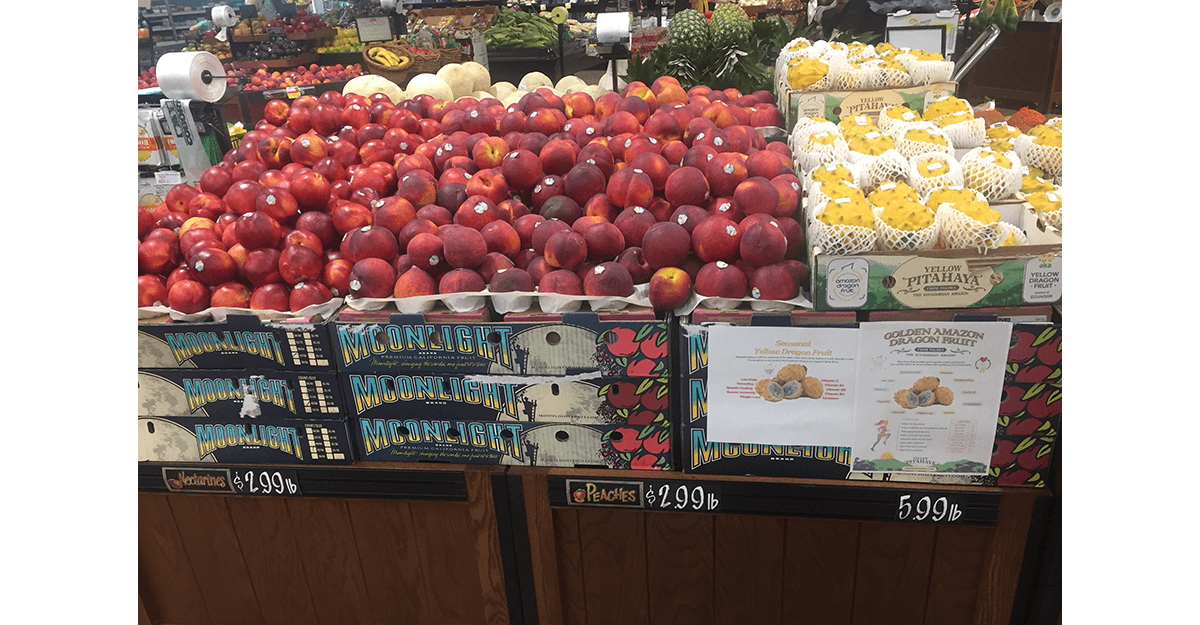(Photos courtesy Rob Ybarra)
Coborn's director of produce Rob Ybarra first tasted yellow dragon fruit at an industry event in April, and by the first week of July the sweet spiky fruit was on display in more than 50 Coborn's stores.
The most familiar dragon fruit variety, with hot pink skin and white flesh, has been garnering increasing interest in recent years, but its yellow counterpart is touted as being even sweeter and more flavorful.
Coborn's enlisted its dietitian to do a Facebook video about the fruit, and she described not just its texture and taste but its nutritional attributes and how to include it in a Fourth of July dish. The video received more than 45,000 views, more than 40 shares and nearly 100 comments.
When the stores first received product the week of the holiday, many did sampling, and those efforts combined with signage about nutrition helped prompt shoppers to try the fruit.

“Guests are loving the sweet flavor and all of the health benefits,” Ybarra said, noting the company did a considerable amount in sales that week given the item was a new product.
Coborn's priced the yellow dragon fruit at $5.99 per pound, and this week it has been on ad for $4.99 per pound.
The retailer is sourcing the fruit from Amazon-Fruit Frexot Productora y Comercializadora S.A in Palora, Ecuador.
Siris Barrios, whose family produces and exports the fruit, said there are a number of harvests throughout the year, but most of the volume comes December through March.
Yellow dragon fruit from Ecuador has only been allowed into the U.S. for two years, but it has been growing in popularity elsewhere, especially in Asian markets.

Over the last three or four years, the expanding demand for the item has had a significant effect on the economy of Palora.
“When I started going to the region with my husband, I remember the roads weren't that great, now the roads are better,” Barrios said. “The yellow dragon fruit has completely transformed the community in terms of providing jobs, economic benefits to the area. It's wonderful.
“People from all over the world come, actually, to get the fruit,” Barrios said. “It sells very nicely in Hong Kong, Singapore, Malaysia, I've gotten calls from Spain, from other places around the world that are looking to get the fruit.”

In earlier years, young people in particular would leave the region because there wasn't enough work. Now it's the opposite situation, Barrios said.
“People joke about it, they say, ‘If you don't want to work in Palora, that's because you're lazy,' because there's just so much work now,” Barrios said. “You can't find enough people for the farms, you can't find enough people for the packing facilities, you can't find enough people to dry the fruit out.”
Being a beneficial part of the community is a key element for Amazon-Fruit Frexot Productora y Comercializadora S.A, and the company is looking into getting a fair trade certification, Barrios said.
Related
Produce Perspective — Rob Ybarra of Coborn's on store-level training
Expert Insight — Rob Ybarra with Coborn's

